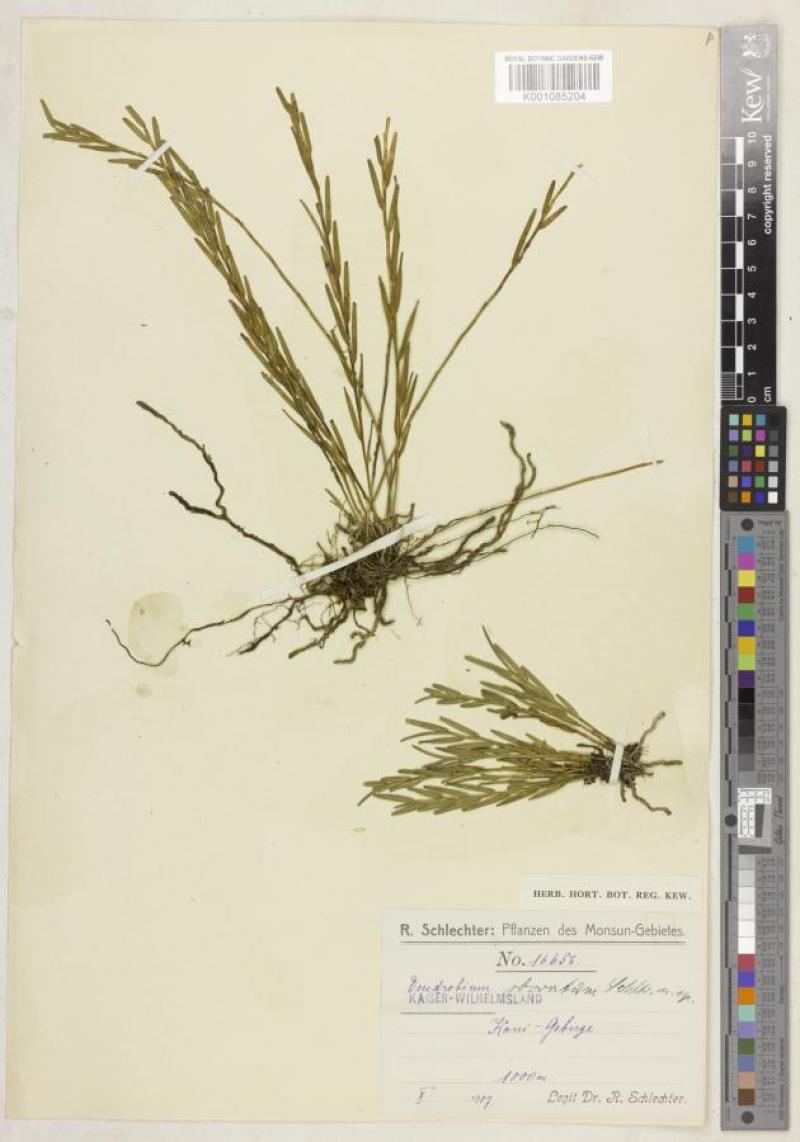Dendrobium obovatum
Also known as: The Obovate Dendrobium or Monanthos obovatus in the subfamily: Epidendroideae
General Information
The Obovate Dendrobium is a sympodial orchid belonging to the sub family Epidendroideae. The name refers to the lip shape.
Plant Description
Sympodial. Grows to 15-20cm. Each new growth has numerous leaves that grow to 1.3-2.5cm long. Pseudobulbs grow to 15-20cm
Substrate(s)
- Coarse
Climate
Grows at high elevations. Rainfall ranges from 51mm to 272mm per day, heaviest in September and lightest in December. Humidity ranges from 67% to 74%, highest in September and lowest in February. Temperature ranges from 17C to 29C, highest in April (19C to 29C) and lowest in January (17C to 28C).
Watering
These orchids prefer a constant supply of moisture, with a slight drying out between waterings. Saucers can be placed under pots to retain moisture during hot weather, however the saucers should be removed or let to dry every 1-2 weeks to prevent rot. Keep an eye on the plant especially in hot weather and look for cues of under/overwatering and adjust accordingly.
Keep moisture levels up during hot weather as the plant is prone to dehydrationFertiliser
Apply liquid based fertiliser per recommended directions. They can benefit from a high phosphate fertiliser leading up to flowering season, followed by a high nitrogen fertiliser when new growth appears, and a balanced fertiliser in other times. These orchids can also tolerate slow release fertiliser applied 1-2 pellets per cup (250ml) of media.
Use balanced fertiliser year round. Apply fertiliser regularly at half strength year round.

